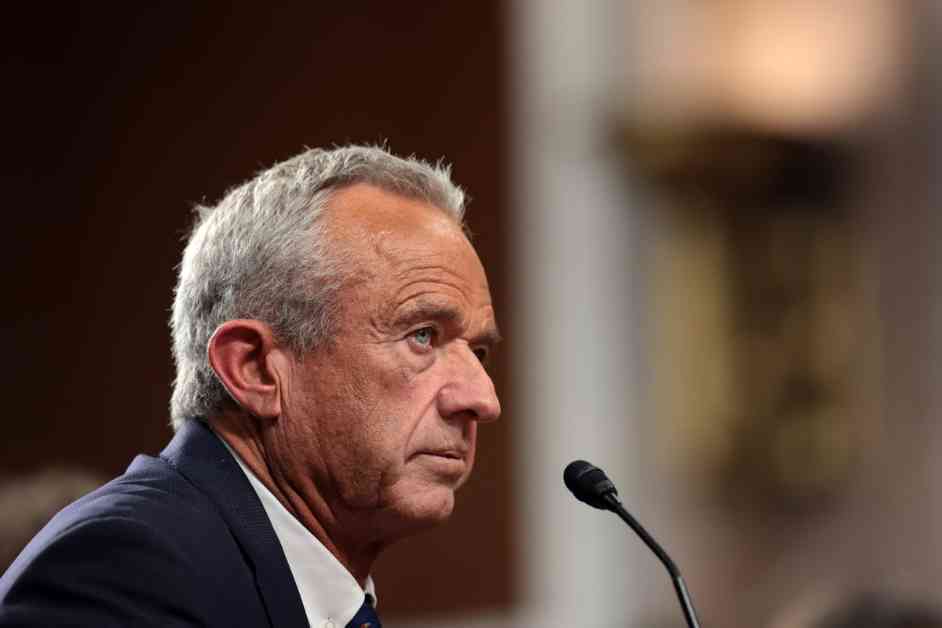Robert F. Kennedy Jr.’s Confirmation as HHS Secretary: A New Era in Biomedical Research
Robert F. Kennedy Jr.’s confirmation as the U.S. Secretary of Health and Human Services has sparked both excitement and concern among scientists. With control over a vast array of science policy, including the Centers for Disease Control and Prevention, the Food and Drug Administration, and the National Institutes of Health, Kennedy’s controversial views on vaccines and infectious diseases are raising questions about the future of biomedical research in the U.S.
Kennedy’s Stance on Science
Kennedy, known for promoting vaccine misinformation and public health conspiracies, has expressed support for certain areas of biomedical research while showing hostility towards others. Despite telling the Senate that he believes in the efficacy of vaccines and their life-saving potential, he has also raised doubts about the safety of vaccines and rejected established scientific evidence on various topics.
Theodora Hatziioannou, a virologist at the Rockefeller University, has criticized Kennedy’s appointment, stating, “Even on issues he claims he supports, he does not follow scientific evidence. Picking a person like this to lead is like having the wolf guard the sheep.”
False Dichotomy in Research
Kennedy’s focus on chronic diseases over infectious diseases has raised concerns among researchers. While prioritizing research on chronic conditions such as obesity, diabetes, and certain cancers may seem beneficial, some experts caution against creating a false dichotomy between chronic and infectious diseases. Eric Lau, a cancer researcher, emphasizes the need for increased funding for biomedical research across the board, rather than shifting resources from one field to another.
Larry Schlesinger, a physician-scientist, highlights the interconnected nature of chronic and infectious diseases, pointing out that infections can lead to chronic conditions like cancer. As researchers uncover more evidence linking infectious agents to chronic diseases, the distinction between the two becomes increasingly blurred.
Focus on Food and Nutrition
As part of his “Make America Healthy Again” initiative, Kennedy has advocated for more research into diet, nutrition, and the connection between environmental factors and human health. While a stronger emphasis on food systems and diet may be welcomed by some, experts like Fatima Cody Stanford caution against oversimplifying complex conditions like obesity. Stanford notes that factors such as genetics, development, and behavior also play a significant role in obesity, challenging Kennedy’s assertion that it is solely caused by environmental toxins.
Deirdre Tobias, an epidemiologist, acknowledges the importance of addressing food policy but stresses the need for evidence-based decision-making. Changes to food systems should be grounded in sound science to avoid unintended consequences. Tobias warns against hasty policy decisions that could potentially do more harm than good.
Budgetary Concerns
Despite Kennedy’s proposed priorities, concerns about reduced funding for biomedical research loom large. With Elon Musk’s pledge to cut the federal budget by at least $2 trillion, the academic community is bracing for financial constraints that could impact research initiatives. The recent announcement of cuts to indirect-cost payments has further fueled anxiety among researchers, prompting a temporary suspension of the policy.
Francisco Diez-Gonzalez, a food-safety microbiologist, highlights the potential impact of funding reductions on scientific endeavors. While Kennedy has promised to re-evaluate the changes to indirect costs, researchers remain uncertain about the future direction of biomedical research under his leadership. Cody Stanford expresses skepticism, noting Kennedy’s lack of a track record in scientific inquiry leaves many questioning his next steps.
In conclusion, Robert F. Kennedy Jr.’s confirmation as HHS Secretary marks a pivotal moment in the landscape of biomedical research in the U.S. As scientists, policymakers, and the public grapple with the implications of his appointment, the need for evidence-based decision-making and a commitment to scientific integrity becomes more crucial than ever. The future of American research hangs in the balance, awaiting the unfolding of Kennedy’s vision for health and human services.















